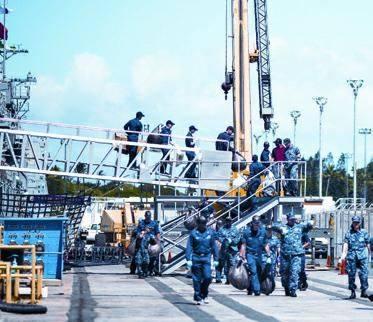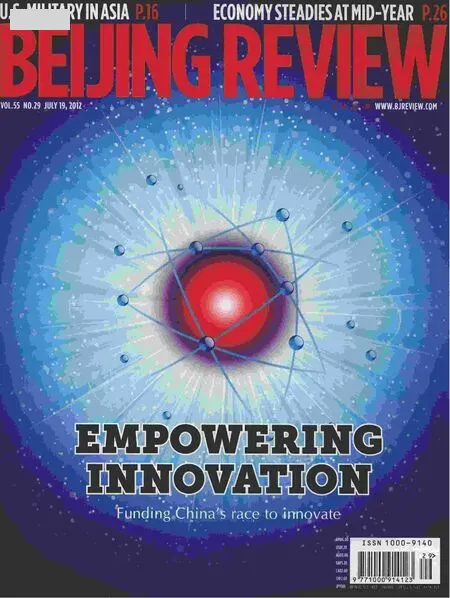Military Reciprocation

Beijing Review: What messages is the China Strategic Culture Promotion Association trying to send by releasing the reports?
Luo Yuan: The core message were trying to send is that all countries in the world should respect each other and treat one another equally. The United States and Japan should refrain from persistently meddling in other countries military affairs. China has the right to make objective evaluations about their military development, so as to give Chinese people and the international community an impartial view of the two countries real military power. We hope to reach the targets of enhancing trust and reducing misgivings by issuing the reports.
Why did you choose to focus on the United States and Japan in your reports? Will the association continue to issue reports on other countries military strength?
We chose to create the reports because of the current situation. The United States shifted its strategic alert from the former Soviet Union to China. The U.S. Congress requires that the Department of Defense release a report on Chinas military power every year. Japan also issues defense white papers criticizing Chinas military development. Their reports on China not only exaggerate Chinas military strength, but also further the so-called “China threat” theory.
Although the Chinese Ministry of National Defense and Ministry of Foreign Affairs lodged solemn requests to stop such rhetoric, the two countries have stayed the course. Under these circumstances, we decided to reciprocate by issuing the reports highlighting their real military power.
We have considered issuing reports on other countries besides the United States and Japan. However, we are focusing on the two nations to stay on top of their irresponsible comments about Chinese military power. We also are studying our neighboring nations. The reason is that we must have a general view of the security environment in our region.
U.S. Secretary of Defense Leon Panetta announced at the Shangri-La Dialogue inSingapore in early June that China is not the target of the United States increasing military forces in the Asia-Pacific region. Do you think the announcement is truthful?
We must judge the United States purpose by its deeds, not just by its words. Surely it would be best if China truly is not Washingtons target. However, at least for now, Chinese people are very confused about U.S. activities. On what basis has the United States returned to the AsiaPacific? Does the security situation of the region pose a threat to the United States? And are there any Asia-Pacific countries making the United States feel the necessity of sending more troops to the region? The United States now deploys six of its 11 aircraft carriers and 60 percent of its nuclear submarines to the region. If China is not the target, then what is? The United States always shouts that China should be more transparent about its military strength. It should then be militarily transparent to China as well as the international community.
Panetta claimed that his country tried to keep a strategic balance in the AsiaPacific by sending more troops there. But according to our report, the United States actually has caused an imbalance in the region. During the Cold War, the United States kept a strategic balance by maintaining 100,000 troops respectively in the Asia-Pacific and Europe. Now it has radically shifted its strategic focus to the Asia-Pacific. Currently, it has 135,000 troops in Asia, and 85,000 in Europe. There are 618 U.S. military planes deployed in Asia, while in Europe there are 290. The United States has stationed 80 warships in Asia and 22 in Europe. Obviously, its strategic balance is skewed to the Asia-Pacific. It should give a reasonable explanation to China, Asia and the whole world.
If the United States is targeting China, what should China do?
The United States has issued some new concepts of military theory, such as “air-sea battles” and “cyberspace operations.” We should take two attitudes about this—one is to stay alert, and the other is to stay calm.
Even as the United States claims it isnt targeting China, we need to thoroughly analyze its intent. The United States declared that its new military concepts are targeting certain countries “anti-access/area denial” abilities. Experts on military theory can easily tell that the so-called “anti-access/area denial” means the Chinese military may deny U.S. forcesaccess to the Asia-Pacific region.
Moreover, China should remain steady instead of dancing to the American rhythm. When the United States makes a move, we need to figure out how to deal with it. But we still need to stick to our development path of realizing national defense modernization with Chinese characteristics. We should not attempt military competition with the United States.
Vice Foreign Minister Cui Tiankai said China understands U.S. interests and concerns in the Asia-Pacific region, and it hopes the United States would also fully respect Chinas interests and concerns in the region. What are their different concerns? Can the two nations maintain a positive relationship in the region? As we know, the U.S. security concern in the region is to guarantee the safety of its sea line of communication. We should add that its sea line of communication has not been threatened as claimed. The United States example was that its military surveillance ship USNS Impeccable was interfered with when carrying out inspection missions in Chinas exclusive economic zone in the South China Sea in 2009. In fact, the U.S. action violated the UN Convention on the Law of the Sea. According to the convention, military ships should follow the principle of “innocent passage” in exclusive economic zones, instead of conducting surveillance activities there. If the United States can give up its hegemonic attitude and stop military inspections in Chinas exclusive economic zones, then its security concern over the safety of its sea line of communication undoubtedly can be satisfied.
Chinas security concern is its sovereignty, territorial integrity and interests at sea, which the United States should respect. After all, it is the United States that has come to Chinas doorstep. China has never done anything jeopardizing the security and interests of the United States in the U.S. neighborhood. We hope the United States can be a peace promoter in Chinas neighboring areas instead of a troublemaker.
If both sides have the sincerity to conduct friendly consultations to enhance trust and reduce misgivings based on the principle of maintaining their good relationship and stability in the Asia-Pacific region, then strategic balance in the region can be guaranteed. But now, the United States is holding the ball.
Can you give us a brief overview of your association and its tasks?
The China Strategic Culture Promotion Association was founded on January 5, 2011. It is a non-governmental and non-profit organization formed by scholars, researchers and entrepreneurs who are enthusiastic about strategy and culture.
We mainly study strategic and cultural issues as well as relations across the Taiwan Straits. We also study international affairs, such as events in the United States, Asia-Pacific region, Europe and Chinas neighboring countries. We follow domestic and international news, make strategic predictions, and introduce Chinas strategic culture to the world so as to enhance trust with other countries.

